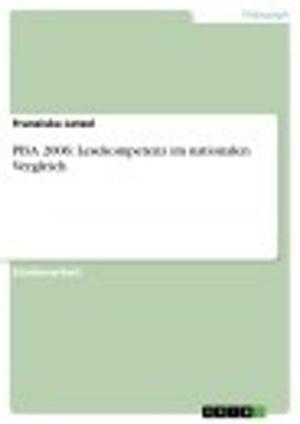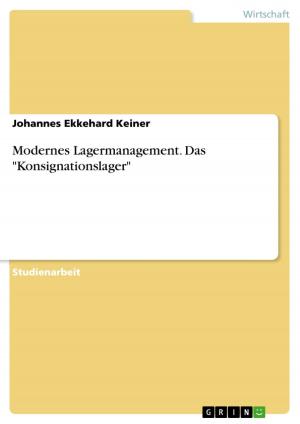Civil Military Relations in Nigeria's Fourth Republic
Nonfiction, Social & Cultural Studies, Political Science| Author: | Samson Ajagbe | ISBN: | 9783656273936 |
| Publisher: | GRIN Verlag | Publication: | September 18, 2012 |
| Imprint: | GRIN Verlag | Language: | English |
| Author: | Samson Ajagbe |
| ISBN: | 9783656273936 |
| Publisher: | GRIN Verlag |
| Publication: | September 18, 2012 |
| Imprint: | GRIN Verlag |
| Language: | English |
Master's Thesis from the year 2009 in the subject Sociology - War and Peace, Military, grade: 1.8, University of Freiburg (Institute of Sociology (Germany)/ School of Social Science (South Africa)), course: Global Studies Programme (GSP), language: English, abstract: The virtues of democracy being promoted by the West in most of emerging democracies are confronted by challenges which are peculiar to each of these transiting nations. The peculiarity of Nigeria's transition lies in the improvised nature of the political system. This challenged the basic principles of democratic system. Being formerly a praetorian state, consolidation of Nigeria nascent democracy is therefore tied to the relationship between the civilian authority and military institution. This research is a study of civilmilitary relations in the context of transition and democratization. The exclusive civilian control of the armed forces in transitional democracy is empirically not suitable, particularly in Nigeria where the military still enjoys its negotiated prerogatives during the transition from authoritarian rule. The role of armed forces in the nation democratisation consequently defines their relationship with civilian authority. Issues of civil-military relations are investigated under the unique nature of the post authoritarian political patterns in Nigeria.
Master's Thesis from the year 2009 in the subject Sociology - War and Peace, Military, grade: 1.8, University of Freiburg (Institute of Sociology (Germany)/ School of Social Science (South Africa)), course: Global Studies Programme (GSP), language: English, abstract: The virtues of democracy being promoted by the West in most of emerging democracies are confronted by challenges which are peculiar to each of these transiting nations. The peculiarity of Nigeria's transition lies in the improvised nature of the political system. This challenged the basic principles of democratic system. Being formerly a praetorian state, consolidation of Nigeria nascent democracy is therefore tied to the relationship between the civilian authority and military institution. This research is a study of civilmilitary relations in the context of transition and democratization. The exclusive civilian control of the armed forces in transitional democracy is empirically not suitable, particularly in Nigeria where the military still enjoys its negotiated prerogatives during the transition from authoritarian rule. The role of armed forces in the nation democratisation consequently defines their relationship with civilian authority. Issues of civil-military relations are investigated under the unique nature of the post authoritarian political patterns in Nigeria.















